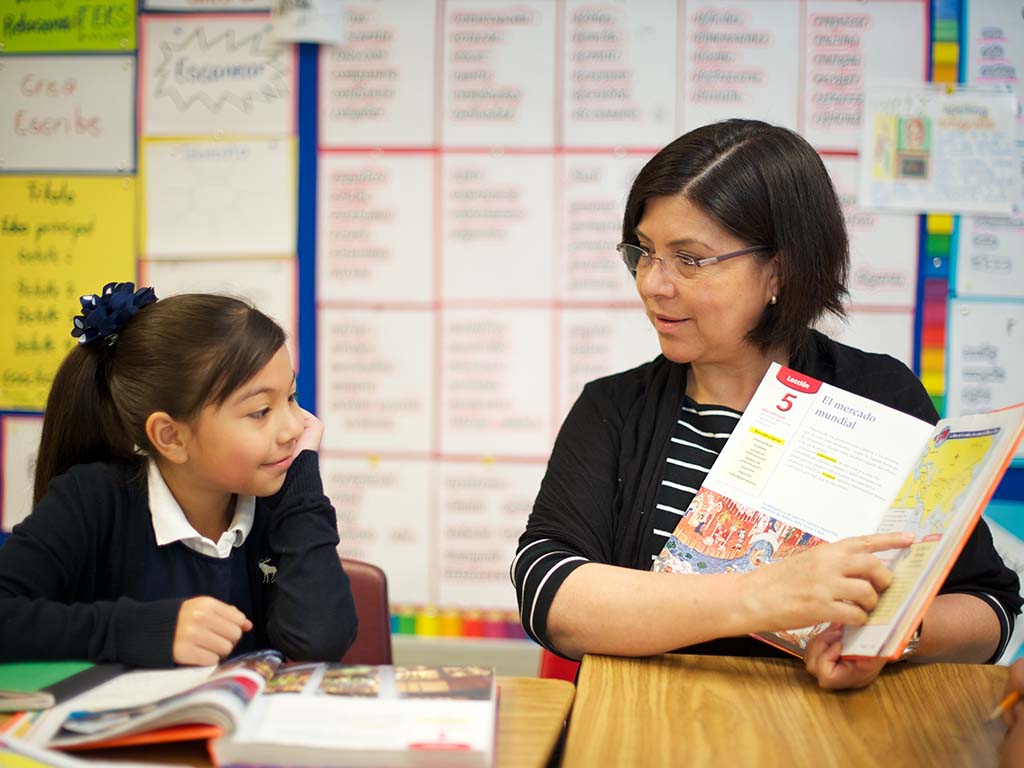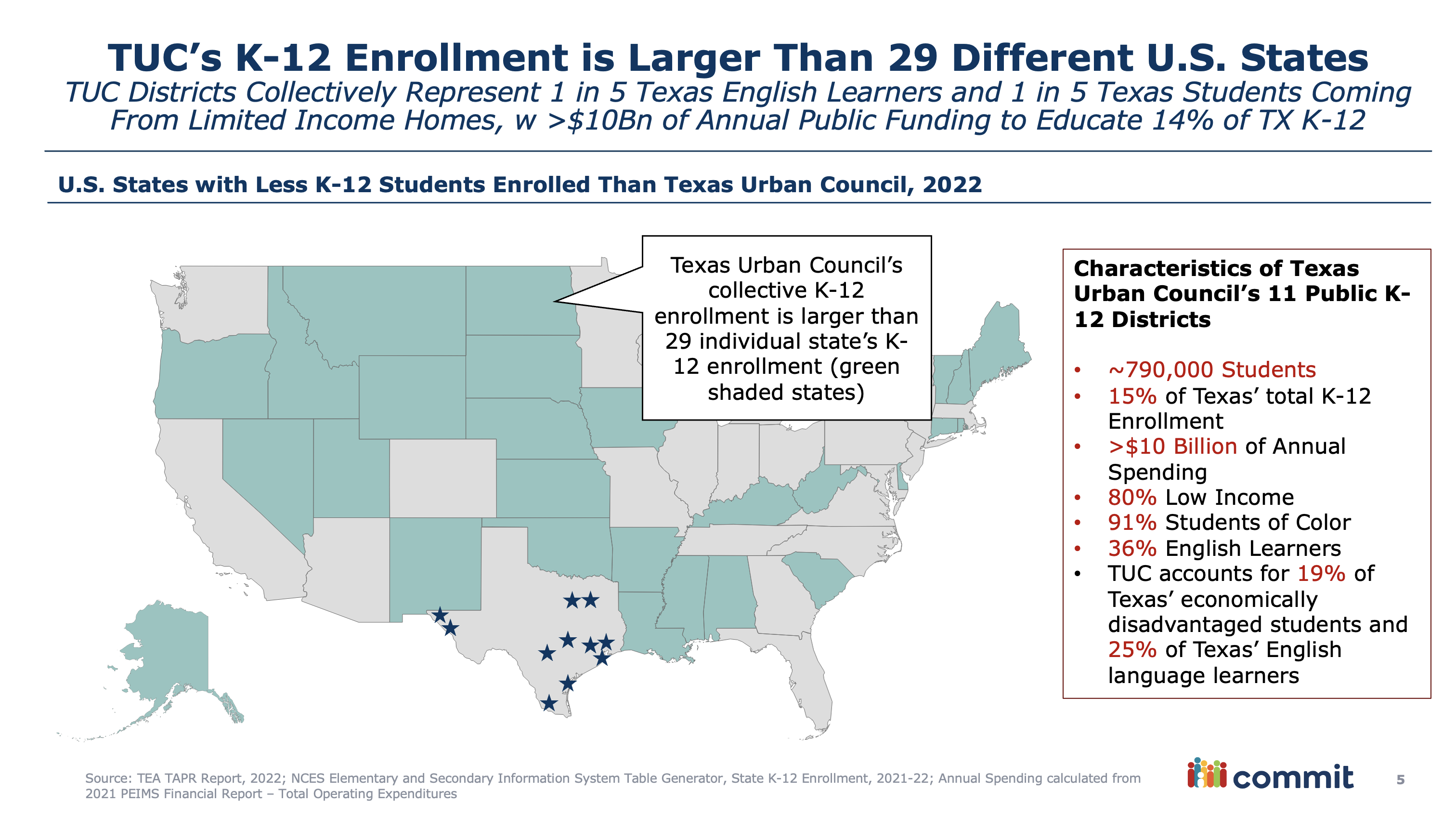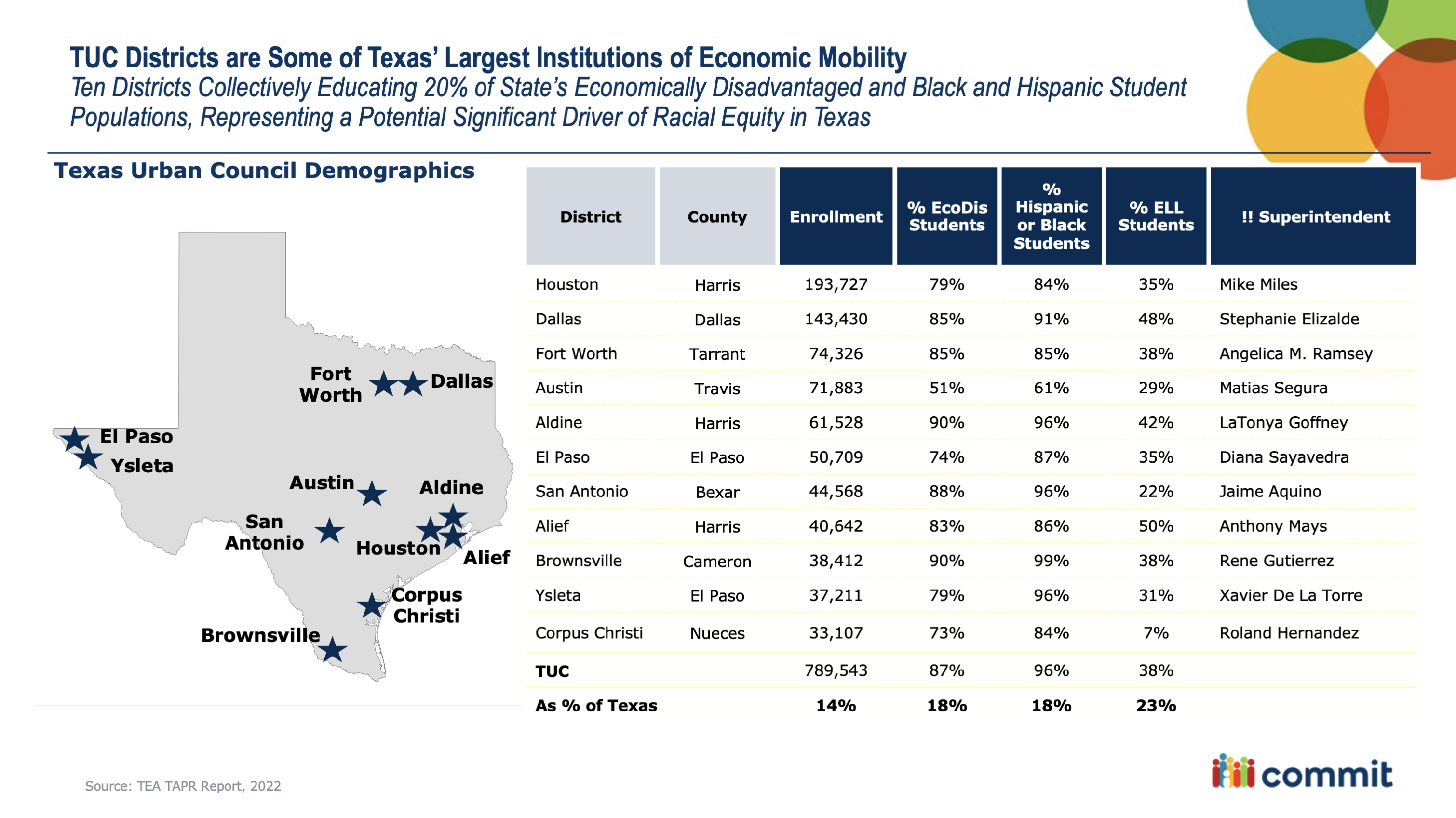The Texas Urban Council of Superintendents (TUC) is transforming Texas urban school districts into places where all students are prepared to thrive in the world.
To do this, TUC leverages the collective power of the state’s largest urban school districts to transform educational practices and improve student outcomes through collaborative innovation and strategic advocacy.
The current TUC member roster includes the following eleven urban independent school districts that collectively educate 15% of Texas’ pre-kindergarten through twelfth-grade enrollment: Aldine, Alief, Austin, Brownsville, Corpus Christi, Dallas, El Paso, Fort Worth, Houston, San Antonio, and Ysleta. Facilitated by the Commit Partnership, these districts regularly convene to analyze academic data; review educational research; develop and share innovative practices; determine where third party capacity building can be most helpful in goal attainment; consider issues uniquely faced by large, urban districts; and monitor and shape legislative and regulatory agendas.
During Texas legislative sessions, TUC serves as the pre-eminent voice for large urban districts while strategically advancing policies that will improve their abilities to serve their unique student populations.
While TUC districts collaborate on a range of educational issues, in 2021 the organization established collective goals in two key areas within the pre-kindergarten through college/career pipeline that research clearly indicates have an oversized impact on the academic and economic outcomes of children: third-grade reading/mathematics proficiency and college, career, and military readiness. These goals serve as a foundation for TUC’s programming and strategic efforts.
A. The average percentage of students within TUC districts meeting state 3rd-grade reading standards will increase to 55% by the school year 2025-26 while reducing existing racial and family income gaps.
B. The average percentage of students within TUC districts meeting state 3rd-grade math standards will increase to 55% by the school year 2025-26 while reducing existing racial and family income gaps.


A. The average percentage of TUC graduates qualifying as CCR per A-F accountability will increase to 70% by the school year 2025-26 while reducing existing racial and family income gaps.
B. The actual CCR Success Funding received by TUC districts (expressed as a % of total funding possible assuming 100% of graduates are assessed as ready and successfully transition to college or career certificate) will increase to 40% by the school year 2025-26 results.
In 1970-71, the superintendents and board presidents of the Dallas and Fort Worth school districts first met to create TUC in order to promote excellence in education for the primary benefit of the students of Texas’ larger school districts which include a significant number of students who are English Language Learners, bilingual, at risk, and/or of lower socioeconomic status.
In 1971, the inaugural meeting was held in Fort Worth. The charter members were Austin, Corpus Christi, Dallas, El Paso, Fort Worth, Houston, and San Antonio ISDs. At the time, they were known as the Big 7. By the 1990’s, Ysleta had joined the group, Aldine joined during the 2000s, Brownsville joined in 2019 and Alief joined in 2023.
All TUC superintendents are also members of the Texas Association of School Administrators – the umbrella organization for all school administrators in Texas. In addition, virtually all of the TUC member districts have joined the Texas School Alliance, which is comprised of urban and suburban school districts across the state. However, the formation of the TUC meets the unique needs of its members in maintaining an urban perspective. While TUC members recognize the tremendous barriers they face relating to poverty, family traumas, racial issues, neighborhood violence, and a multitude of other concerns, they continue to believe they can transform their schools into places where all students can excel.

